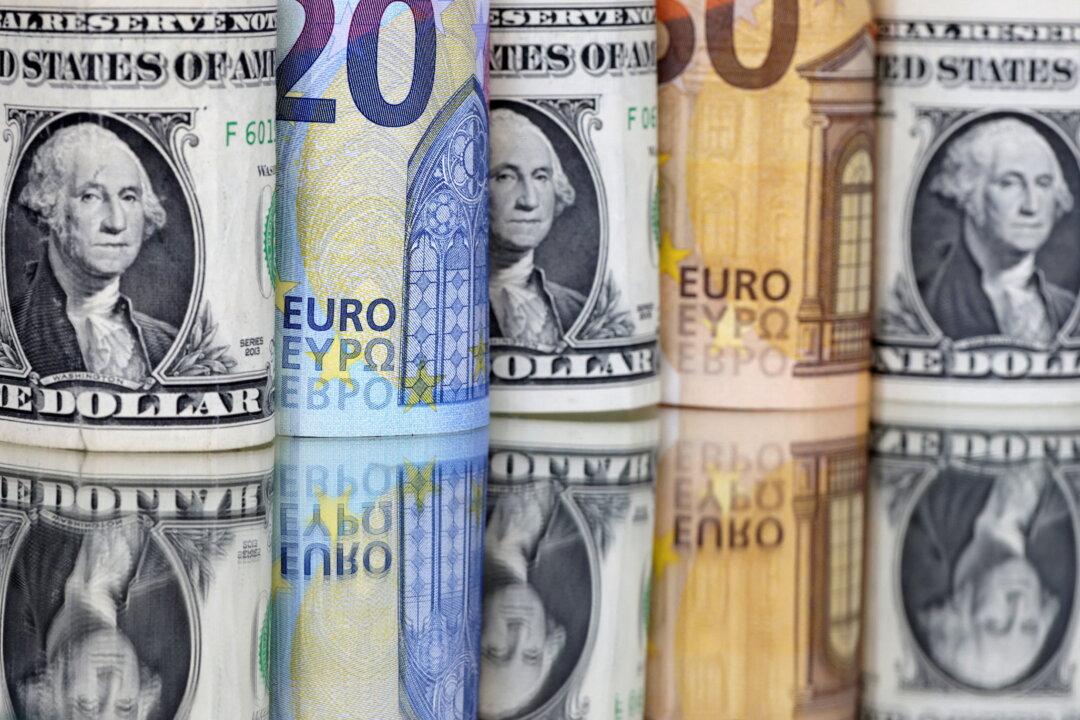SINGAPORE/LONDON—The dollar advanced on Monday, regaining some ground lost earlier in the month, at the start of a week packed with data releases and central bank rate setting meetings, including by the Bank of England and the Federal Reserve.
The euro slid 0.5 percent to $0.9919, sterling lost 0.56 percent to $1.1549, and the dollar rose 0.57 percent against the Japanese yen to 148.2, as the weakness seen in the greenback earlier in the month continued to fade.





